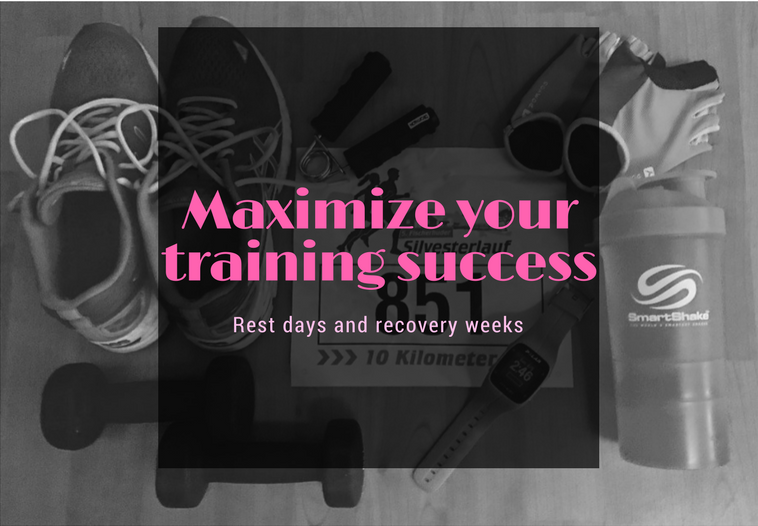Maximize your training success - Rest days and recovery weeks

Most people believe that they only improve in a specific sport if they train hard enough. It is true that intense training has to be done in order to increase your performance, but you should not forget about your recovery. Recovery is as important as the training itself. Rest days contribute a crucial part to the success of your training.
Training is stressful for the body. But this kind of stress is an important factor in order to increase our performance in a specific sport. The body has to adapt to this stress, or the training stimulus caused by training and consequently it is very important to give your body the time and opportunity to adapt. This adaption can be achieved by rest days, where you do not train. or recovery weeks.
Rest days or passive recovery are done for short-term recovery. After a taxing training your body needs a day off in order to recover from the stress causes by the training. Short-term recovery will help your body to prepare for your next training.
Active recovery is another possibility to recover. I do not really think that active recovery is a real rest days. But the purpose of active recovery days is to support the body in its recovery processes. This can be done by doing a very light run or weight training with very light intensities.
During a recovery week the volume and training intensity will be reduced. A recovery week is usually done after 3-5 weeks of intense training. During that week the body has more time to adapt from training stress. Even though rest days have been done regularly, the body needs a longer period of time to recover. Especially when prior training has been very taxing and a lot of fatigue has been accumulated over the past weeks. This overreaching and training stimuli are intended, but your body has to adapt to these stimuli. Afterwards you can expose your body to new training stress. This is called supercompensation.
In every sport recovery weeks are done differently. In strength sports this is called deload and training volume will be reduced, while in running the mileage will be reduced.
Another aspect of regular recovery is injury prevention. The longer the body is exposed by stress, the risk of an injury will increase a lot, e.g. torn muscles or stress fractures. Moreover, your body will not be able to perform the way it did before. This means your performance will decrease even though high training intensities.
The amount of rest days is dependent on your individual training level. Novice athletes will most likely need more recovery than advanced athletes. But recovery weeks are mandatory for everybody. Those of you who do not want to do rest days should at least reduce the training intensity for one or two days.
Take into account that you need time to recover and adapt when you schedule your training. This is key if you want to stay injury-free and to increase your performance.
Stay strong!
Agree, rest days are crucial :)